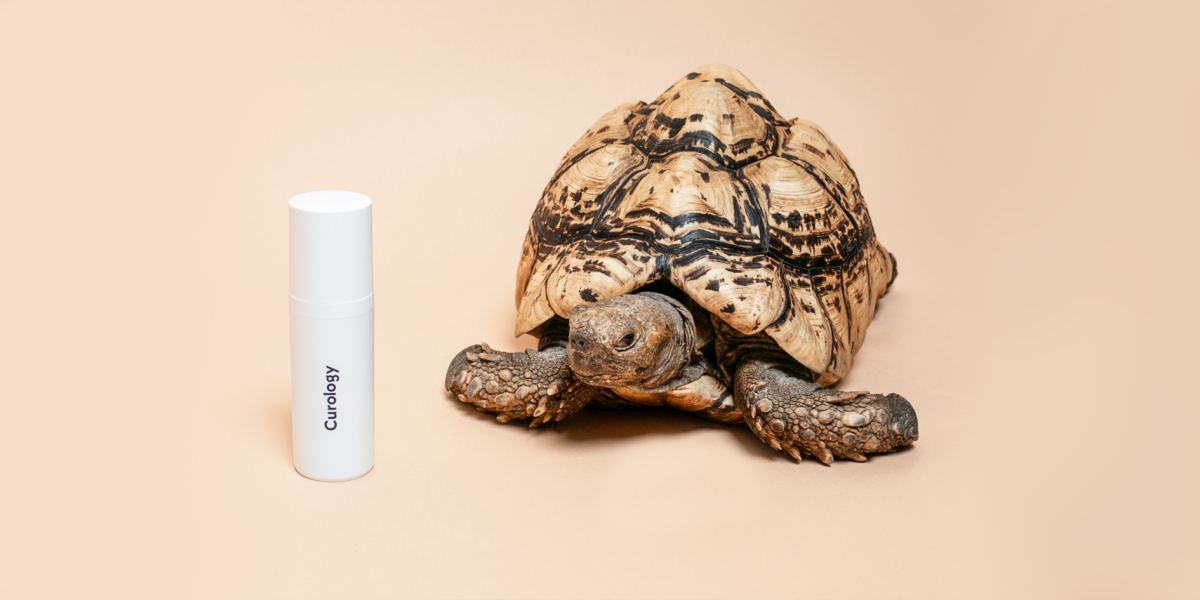How it works:
Share your skin goals and snap selfies
Your dermatology provider prescribes your formula
Apply nightly for happy, healthy skin
How it works:
How it works:
Share your skin goals and snap selfies
Your dermatology provider prescribes your formula
Apply nightly for happy, healthy skin
How it works:
Natural skincare: fact vs. fiction
The truth about organic, clean, natural beauty



Whether you prefer organic skincare, natural skincare products, or clean beauty, all skincare products contain chemicals — even animals, vegetables, and minerals are made up of chemicals. So which ones will work for you, and which ones are bad fads that will make you sad?
When it comes to natural skincare, I’m always the first one to encourage you to use a machete to harvest the raw gel of the aloe vera plant in your backyard. Primitive beauty hacks are a great way to transport back to the paleolithic era, but when it comes to modern-day products, labels can be deceiving. So I looked into the skincare science behind “natural” beauty — and what I learned was surprising.
Natural skincare facts
Are you, like me, a hyper-conscious label reader? If so, sussing out a skin myth is all about being hip to the lingo:
Organic skincare. Organic ingredients are derived from plants grown without pesticides. If a product’s ingredients are at least 95% certified organic, it will bear an official USDA organic seal. But that doesn’t mean organic ingredients are automatically good for your skin — a naturally occurring poison ivy, grown without any synthetic chemicals, can (and will!) still cause an allergic reaction for most.
Natural beauty. When it comes to “natural beauty,” it’s in the eye of the beholder — FDA regulations don’t define “natural,” so when it comes to natural skincare, consider it a marketing buzzword meant to attract consumers who are, in some way, eco-conscious.
Clean beauty. Clean beauty is a conscious consumer movement that advocates for ingredient transparency. In 2018, Clean at Sephora was launched, propelling the phrase “clean beauty” into the mainstream. In other words, “clean beauty” is a marketing term, just like “natural beauty.”
Whether you prefer “clean” beauty or “natural” beauty, what you’re probably seeking are skincare products without harsh synthetic chemicals. You might also have a preference for beauty products with certifications, such as organic, cruelty-free, or fair trade.

Organic ingredients are derived from plants grown without pesticides.
That said, again, an ingredient that occurs naturally in the environment isn’t inherently safer than a synthetic ingredient. Just because I found all this snake oil in my backyard doesn’t mean I should rub it all over my face! Which brings me to my next point:
Essential oils for skin: the good and the bad
Long story short, essential oils are neither inherently good or bad for the skin. You may find certain essential oils moisturizing, or feel relaxed by their fragrances. However, many people are allergic to certain essential oils, and clinical evidence of benefits from using essential oils for skin is lacking. One study found allergic reactions were caused by nearly 80 different kinds of essential oils. Oils may also become unintentionally contaminated by improper storage, production, or exposure to other substances. Skincare ingredients to avoid potentially include oils derived from chamomile, lavender, and rose — to name a few. If you want to use essential oils in your skincare, always patch test before use! And make sure your products are passing the CosDNA test.

Start your free trial (plus shipping and handling)
3 beauty brands, reviewed
Are these trendsetters all hype, or are they backed up by solid skincare science?
Eminence Organic Skin Care
One of the leading organic skincare brands, Eminence Organic Skin Care is certified organic, vegan, and cruelty-free. With product names like “Bamboo Firming Fluid” and “Strawberry Rhubarb Dermafoliant,” their skincare is perfect for anyone who wishes they could actually become a plant. The downside? Their products aren’t vetted by the Environmental Working Group — and the EWG labeled many of their formulations from 2014–2016 as moderately hazardous. A quick analysis of their products on CosDNA reveals that they contain many essential oils, as well as potentially pore-clogging ingredients. That said, if your skin reacts nicely to this organic skincare brand, occasional use of their products may be totally fine.
Drunk Elephant
Arguably the most popular brand showcased by Clean at Sephora, there’s a lot to love about Drunk Elephant. When it comes to skincare science, Drunk Elephant keeps it real. They prioritize the safety of their ingredients regardless of their natural or synthetic status. Their products are clinically proven to be non-comedogenic, as well as cruelty-free (but not vegan). And equally important to what’s in their formula is what they leave out: essential oils, fragrances, and drying alcohols, to name a few. Positive Drunk Elephant reviews are well-earned, in this blogger’s opinion — but it’s not a “green beauty brand” in any traditional sense of the phrase, and I wouldn’t have it any other way.
Curology
Wondering about Curology’s ingredients? Our company was recently certified vegan and cruelty-free by Leaping Bunny. What’s at the heart of this company’s mission? The Hippocratic Oath: first, do no harm. Curology’s bespoke skincare cream is custom formulated on an individual basis and prescribed by a team of board-certified dermatology providers, so you can feel confident in the safety of the ingredients in your products. And with a cleanser and moisturizer specially formulated to restore and maintain your skin’s natural health, Curology has your daily routine covered. Start a free trial of Curology and just pay $4.95 to cover the cost of shipping and handling.

Stephanie Papanikolas